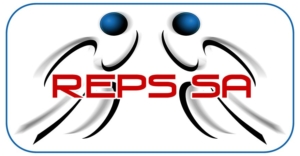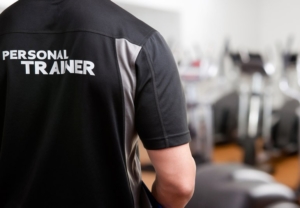 The health and fitness sector is one of the most dynamic industries out there – it’s one of the many reasons why we’re so passionate about it! New information is constantly coming to light regarding how the body works and how we can apply what we already know in new and innovative ways to improve fitness, boost performance, aid our health or reshape our physiques.
The health and fitness sector is one of the most dynamic industries out there – it’s one of the many reasons why we’re so passionate about it! New information is constantly coming to light regarding how the body works and how we can apply what we already know in new and innovative ways to improve fitness, boost performance, aid our health or reshape our physiques.
It’s therefore essential that as fitness professionals we stay up to date with the latest trends and industry best practices if we hope to deliver the best results for clients. And one of best ways to do this, which is increasingly becoming a regulatory requirement in countries around the world, is through the attainment of Continued Education Credits (CEC).
Regulated requirement
Certain health and fitness professionals who require a license to practice, such as physiotherapists and biokineticists are already required to attain a certain number of CECs each year to remain registered members of the relevant governing body or industry regulator.
Despite a number of plans to implement a similar system for personal fitness trainers (PFTs) in South Africa, there is currently no governing association or regulatory body that enforces CEC requirements within this sector of the industry.
Fitness professionals who want to adhere to industry best practices can register with the Register of Exercise Professionals South Africa (REPSSA), which is a non-profit public register for the local industry that seeks to maintain industry standards. REPSSA is a member of the International Register of Exercise Professionals (ICREPS), which gives REPSSA members international portability for various fitness qualifications earned in SA.
Any fitness professional who is registered with REPSSA need to earn a minimum of 12 Continuous Professional Development, or CPD points each year to maintain their membership, which are a form of CECs. While CECs are not a regulated requirement, PFTs and other fit pros shouldn’t rely on foundational certificates, diplomas or degrees to sustain them throughout their careers, if they hope to stay relevant and effective, that is.

First for foremost, CEC courses offer valuable opportunities for fit pros to stay up to date on various industry topics, from new developments in functional training and sports science and conditioning, to group fitness innovations, the latest research on diets and proactive health and preventative interventions.
Various options
CECs generally take the form of short courses, which can be completed over the weekends, after hours or via online learning platforms. Depending on the course content and duration, a certain number of credits will be allocated to following the successful completion of the course.
Fit pros can also attend health and fitness a variety of related conferences, seminars or industry events, which often also count towards attaining credits when organised by a registered provider.
Business benefits
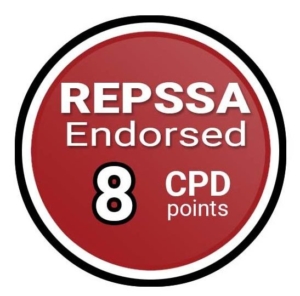 While there are generally costs associated with obtaining CECs, and the opportunity cost of time spent out of the gym or away from clients should also be factored in, continued education can benefit a your business and boost your earning potential.
While there are generally costs associated with obtaining CECs, and the opportunity cost of time spent out of the gym or away from clients should also be factored in, continued education can benefit a your business and boost your earning potential.
Additional certifications, even short courses, can help to broaden your service offering, which makes it possible to tap into your existing client base to generate new revenue streams, or fill gaps in your day between personal training sessions. Popular options include group fitness trainer courses, sports massage courses or indoor cycling options.
 Continued education is also a practical means to specialise in a specific field, such as sports conditioning, pre and post natal exercise, or training special populations. By accumulating qualifications in a specific field, you can become an expert and can crave out a niche in the industry, often with the ability to charge a premium for your services.
Continued education is also a practical means to specialise in a specific field, such as sports conditioning, pre and post natal exercise, or training special populations. By accumulating qualifications in a specific field, you can become an expert and can crave out a niche in the industry, often with the ability to charge a premium for your services.
A more comprehensive CV filled with CECs can also boost your employability with the major gym chains, many of which have adopted a ‘best practice’ approach which mandates that their PFTs and fitness instructors attend CEC courses annually, often as part of their contractual obligations with the gym.

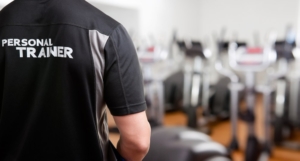

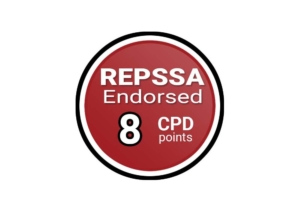 A more comprehensive CV filled with CECs can also
A more comprehensive CV filled with CECs can also  With the amount of new information that scientists unearth on a daily basis, coupled with the ever changing techniques being used to build muscle, burn fat, improve fitness and shape physiques, it is essential for fitness professionals in the industry to stay up to date with the latest trends.
With the amount of new information that scientists unearth on a daily basis, coupled with the ever changing techniques being used to build muscle, burn fat, improve fitness and shape physiques, it is essential for fitness professionals in the industry to stay up to date with the latest trends.
